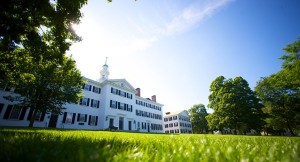Editor’s Note: The following post was conceived of as a response to a recent editorial in The Daily Dartmouth. The original piece can be read here.
“Both parents, one grandparent, an aunt, and my brother’s in Beta.”
My jaw dropped when I heard a peer describe his family’s rich connection with Dartmouth. You’ve known your whole life where you would go. My father, who hopped straight from high school to medical school in Johannesburg, and my mother—an alumnus of a single-sex college—left me ill equipped as a legacy in higher education. I entered the college selection process without any notion of whether I was looking for something large or small, centralized or scattered; thousands of students across the country quickly select their relative’s alma maters as their school of choice. Most colleges incentivize this loyalty by offering legacy students preference in the admission process.
Those opposed to this inherited advantage invoke terms like nepotism and reinforcement of the social classes. Why should a hardworking, African American kid from a low-income neighborhood see his spot taken by a posh legacy who coasted through boarding school knowing his parents could just make a call?
While this argument does sound compelling when portrayed in such an extreme light, it is important to remember that the thousands of decisions the college makes each year are not so binary. In 2015, Dartmouth received over twenty thousand applications from diligent hopefuls who care about their education. Undoubtedly, hundreds teetered on the edge of acceptance, silently dissolving from our campus with each approval by the admission committee. These students are separated by an absent-minded Scantron mis-bubbling or an all but made-up leadership position. When admissions criteria are so subjective, who is to say who deserves to be here and who does not?
Giving preference to the hardworking and qualified students with family’s ingrained in Dartmouth’s heritage and culture does not rob any deserving student of his education. It is one of the least arbitrary or subjective judgments in the dice roll that is college decisions.
Ultimately, an accepted legacy comes with a loyalty to our school, a knowledge of and appreciation for Dartmouth’s culture, and a much higher likely hood of matriculating—and therefore increasing our yield. Most tireless students who jump through the application loopholes and polish themselves for months in preparation for the admission process aren’t going to have only one top choice.


Be the first to comment on "Defending Dartmouth’s Legacy"